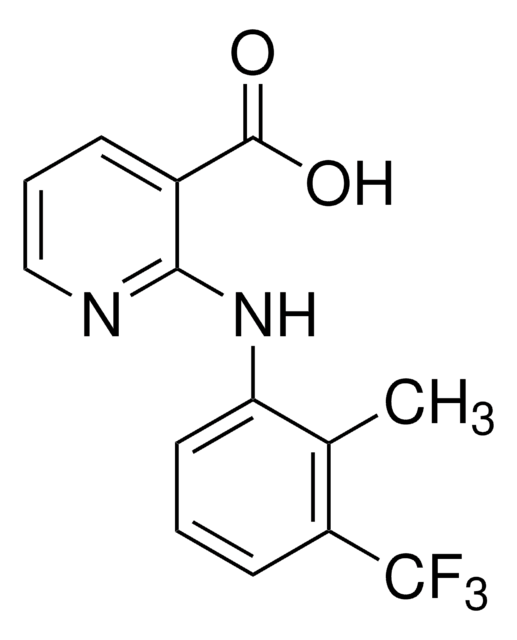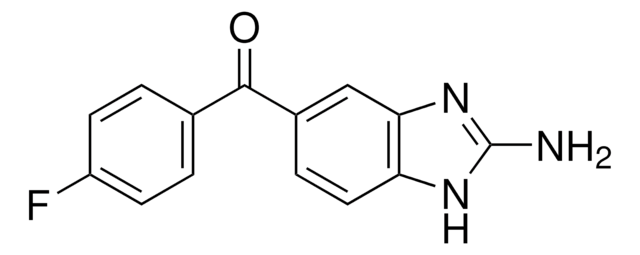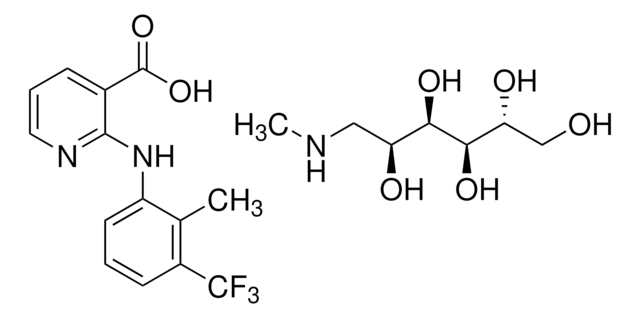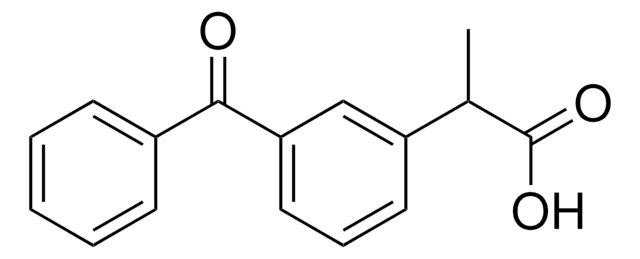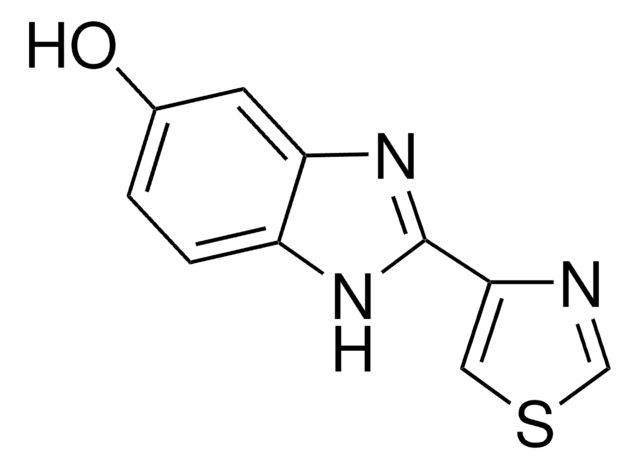32463
5-Hydroxyflunixin
VETRANAL®, analytical standard
Synonym(s):
5-Hydroxy-2-(2-methyl-3-trifluoromethylanilino)nicotinic acid, 5-Hydroxy-2-{[2-methyl-3-(trifluoromethyl)phenyl]amino}-3-pyridinecarboxylic acid
About This Item
Recommended Products
grade
analytical standard
Quality Level
product line
VETRANAL®
shelf life
limited shelf life, expiry date on the label
technique(s)
HPLC: suitable
gas chromatography (GC): suitable
application(s)
forensics and toxicology
pharmaceutical (small molecule)
format
neat
SMILES string
Cc1c(Nc2ncc(O)cc2C(O)=O)cccc1C(F)(F)F
InChI
1S/C14H11F3N2O3/c1-7-10(14(15,16)17)3-2-4-11(7)19-12-9(13(21)22)5-8(20)6-18-12/h2-6,20H,1H3,(H,18,19)(H,21,22)
InChI key
JSXNJGKWSWRIGA-UHFFFAOYSA-N
General description
Application
Recommended products
Legal Information
signalword
Warning
hcodes
Hazard Classifications
Acute Tox. 4 Oral
Storage Class
11 - Combustible Solids
wgk_germany
WGK 3
Choose from one of the most recent versions:
Already Own This Product?
Find documentation for the products that you have recently purchased in the Document Library.
Our team of scientists has experience in all areas of research including Life Science, Material Science, Chemical Synthesis, Chromatography, Analytical and many others.
Contact Technical Service